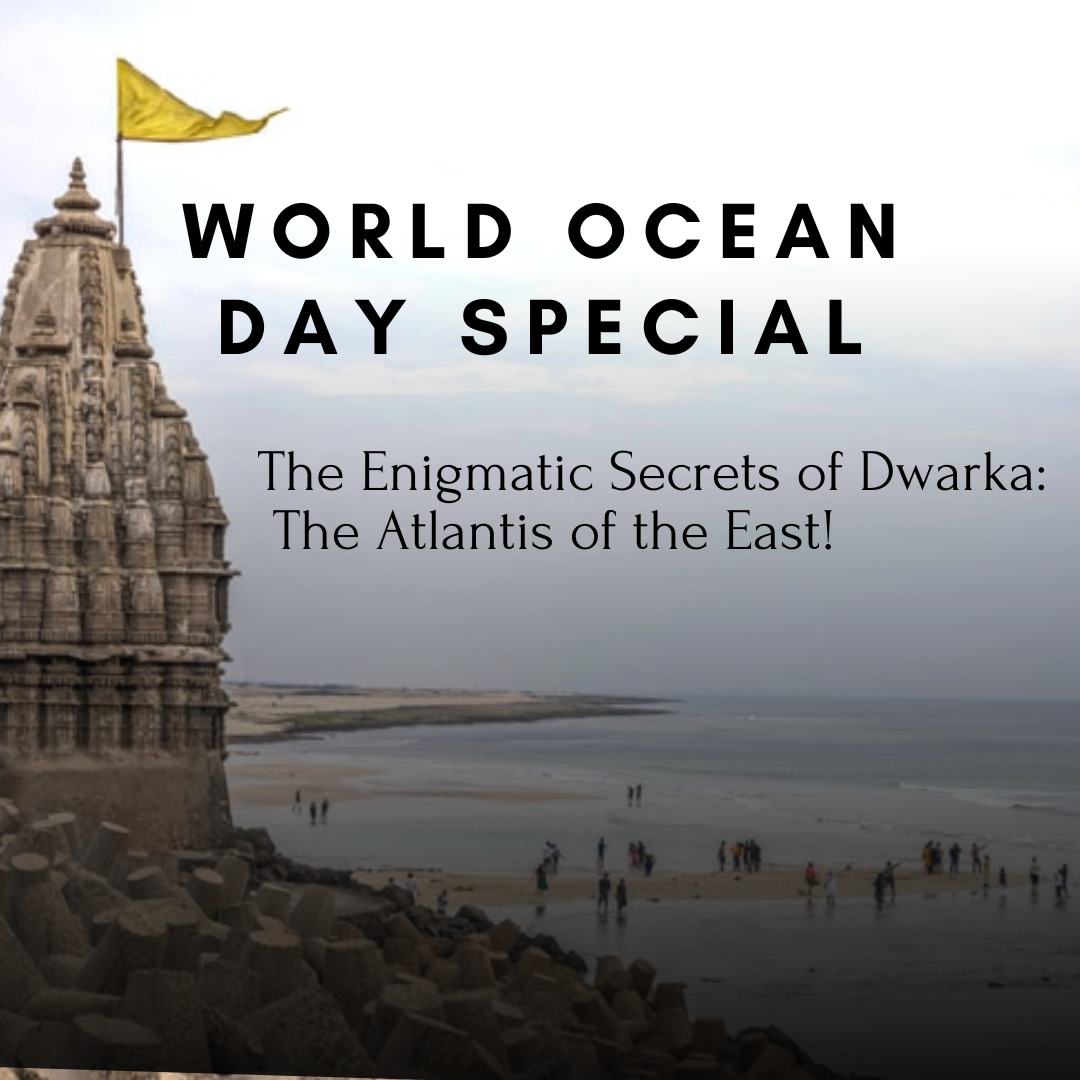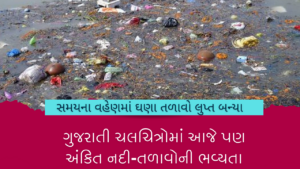~ An Article by Karan Modi
अंतः अस्ति प्रारंभः
The end is the beginning! Since the moment Dwarka vanished beneath the waves, an enigmatic tale unfurled, destined to captivate generations to come. The city’s earliest form, referred to as the “ancient kingdom of Krishna” in the epic Mahabharata, existed as a fortified city spanning approximately 84 km. It was situated at the confluence of the Gomti River and the Arabian Sea.
Situated on the Western tip of the Saurashtra foreland in the state of Gujarat, Dwarka holds a dearly place in the hearts of pilgrims and its historical and archeological background is shrouded in mystery.
So, on this World Ocean Day, let’s uncover some mysteries behind the lost city of Dwarka: The Atlantis of the East!
The History of Dwarka!
In the depths of time, long before recorded history, a mesmerising chapter unfolded—tracing back to the moment Dwarka descended into the watery abyss. This extraordinary event set in motion a mysterious narrative that would weave its spellbinding tapestry through countless generations.
Dwarka, just like Atlantis, is said to have sunk beneath the sea at some point in the distant past. However, the difference between these two mysterious cities resting in the depths of the ocean is that the remains of Atlantis have never been discovered while the remnants of this historical kingdom could be found in depths.
As per the Mahabharata’s ancient verses, an extraordinary event transpired: on the very day that Krishna, the divine being, bid farewell to the mortal realm after a remarkable 125-year sojourn, Dwarka met its watery fate, engulfed by the vast expanse of the Arabian Sea. It was this pivotal juncture that marked the commencement of the Kali age, an epoch of profound significance.
The ocean reclaimed the land, sinking the lost city, while sparing the palace of Lord Krishna. Until recently, the presence and existence of Dwarka was only a folklore but with its remains discovered underwater and with many sightings pointing to its existence, many archeologies are diving deep to learn more about the residence site of Lord Krishna.
The Mystery of Dwarka: Unearthed by Archeologists!
Excavations were initiated nearly a century ago, during the 1930s, in the vicinity of Bet Dwarka, an island situated about 30 kilometres north of present-day Dwarka in Gujarat’s Jamnagar district.
Further excavations took place in the 1960s, but conclusive findings were lacking. In 1979, the Archaeological Survey of India conducted an additional excavation, leading to the discovery of pottery dating back to the second millennium BC.
Between 1983 and 1990, archaeologists unearthed a structure believed to be a fortified foundation upon which the ancient city walls were constructed along the riverbanks.
More than 500 artefacts were found at the site, with certain samples and dating elements providing strong evidence of a 2,000-year-old cultural lineage. Stone blocks, pillars, and irrigation systems were also uncovered, although the precise dates of these discoveries remain a subject of debate.
Dr. Rajiv Nigam, the former chief scientist of CSIR-NIO (Council of Scientific and Industrial Research – National Institute of Oceanography), explains that the underwater exploration process began with excavations near the current Dwarkadhish temple.
This temple was erected between the 13th and 15th centuries BCE. Dr. S R Rao, a renowned Indian archaeologist, conducted an offshore survey to search for indications of the submerged metropolis, and a comprehensive excavation was carried out in 2007. He noted that Dwarka’s location on India’s westernmost tip, in present-day Gujarat, aligns with the description found in written literature.
At the same depth, a significant number of stone anchors have been discovered on the site, indicating that Dwarka held a significant role in the trade connections between Indian and Arabic regions from the 15th to 18th centuries.
This suggests that the ancient city was once a vital maritime hub and an important gateway for foreign sailors entering India.
Conclusion
The term “dwarka” in Sanskrit translates to “door” or “gate,” further reinforcing the notion of this port city serving as an entrance for international seafarers. This is one of the mysteries that is hidden in the Ocean which was uncovered.
With 70% of earth covered with water, mysteries are plenty. If you want more mysteries related to the ocean, do let us know in the comment section!













